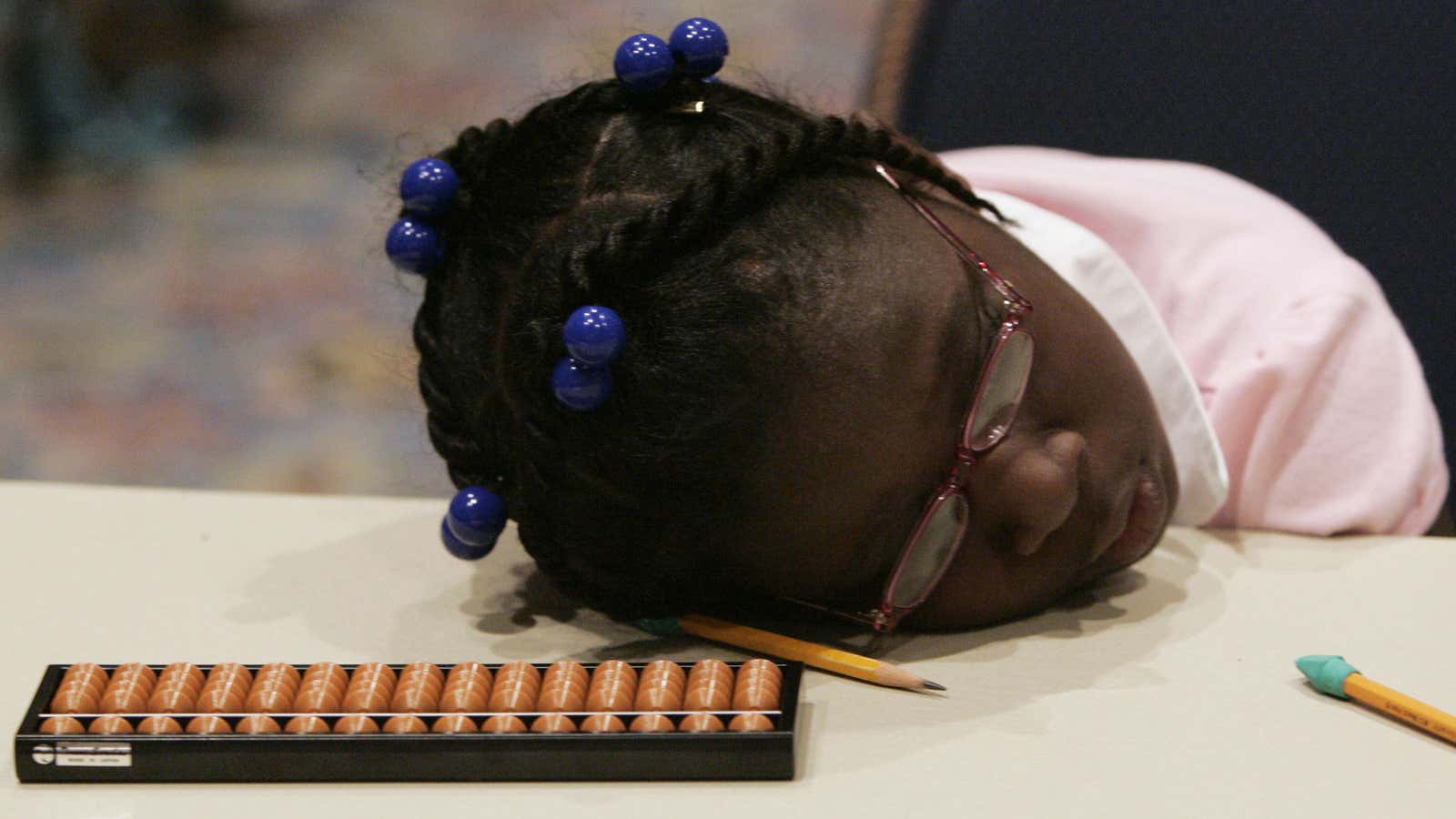It is painfully obvious that some forms of unequal treatment due to race are immediately deadly. But new research shows that other forms of racial discrimination are more perniciously harmful and dangerous to an individual’s health on a daily basis.
Recent research has shown that unequal treatment of black people by civilians in daily life, also known as everyday discrimination, affects biology in ways that have small but cumulative negative effects. Discrimination affects biological processes such as stress hormones and sleep, which are important for health and daily performance.
Everyday experiences of discrimination (such as being treated with less respect or receiving poorer service) are common and affect black people in the US more frequently than white people. In national data (paywall) comparing perceptions of discrimination by black and white people, 24.8% of black people believe themselves to “often” be the target of everyday discrimination, compared to only 3.4% of white people. By contrast, 44.1% of white people say they are “never” the target of everyday discrimination, whereas only 8.8% of black people claim never to be discriminated against in daily life.
Accumulating evidence from my own research and that of other research labs shows that perceived discrimination is linked to changes in levels of stress hormones such as cortisol. My research at Northwestern University has found that young adults from racial/ethnic minority groups who perceive more discrimination have higher levels of cortisol in the evening, and less decline in cortisol levels (registration) across the day than those with lower discrimination.
Flatter cortisol rhythms across the day have been linked to higher fatigue (paywall), worse mental health (paywall), cardiovascular disease (paywall), and mortality, as well as problems with cognitive performance (paywall) such as worsened memory (paywall).
The impact of discrimination on cortisol adds up over time. Using data collected over a 20-year period, our recent findings show that the more discrimination people experience across adolescence and early adulthood, the more dysregulated their cortisol rhythms are by age 32. For black study participants, discrimination occurring in adolescence had particularly strong effects on adult cortisol levels.
The effects of discrimination on stress hormones may be passed down across generations. In results newly released (paywall) from the University of Denver and Northwestern, higher racial discrimination was linked to higher evening cortisol in pregnant mothers, and also predicted larger cortisol reactions to stress in the infants of those mothers.
Another biological process that is influenced by perceived discrimination is sleep. Black people sleep less than white people, on average by just over a half hour per night for both adolescents (paywall) and adults.
Black people also get lower amounts of restorative deep sleep. There is evidence that racial discrimination and the increased vigilance it causes plays an important role in contributing to alterations in sleep hours, sleep quality, and sleep architecture (the structure and pattern of sleep).
Shorter sleep has important ramifications. Short sleep has been related to greater fatigue, lower self-esteem, increased depression (paywall), disruptions in immune functioning, increased inflammation, increased obesity, diabetes and heart problems, increased risk of unsafe driving and accidents, slowed reaction times, and impaired attention and memory.
#Icantsleep and #Icantconcentrate may not yet be trending on Twitter alongside #BlackLivesMatter, but these health consequences are potentially harmful realities for many black people who face discrimination on a daily basis.




